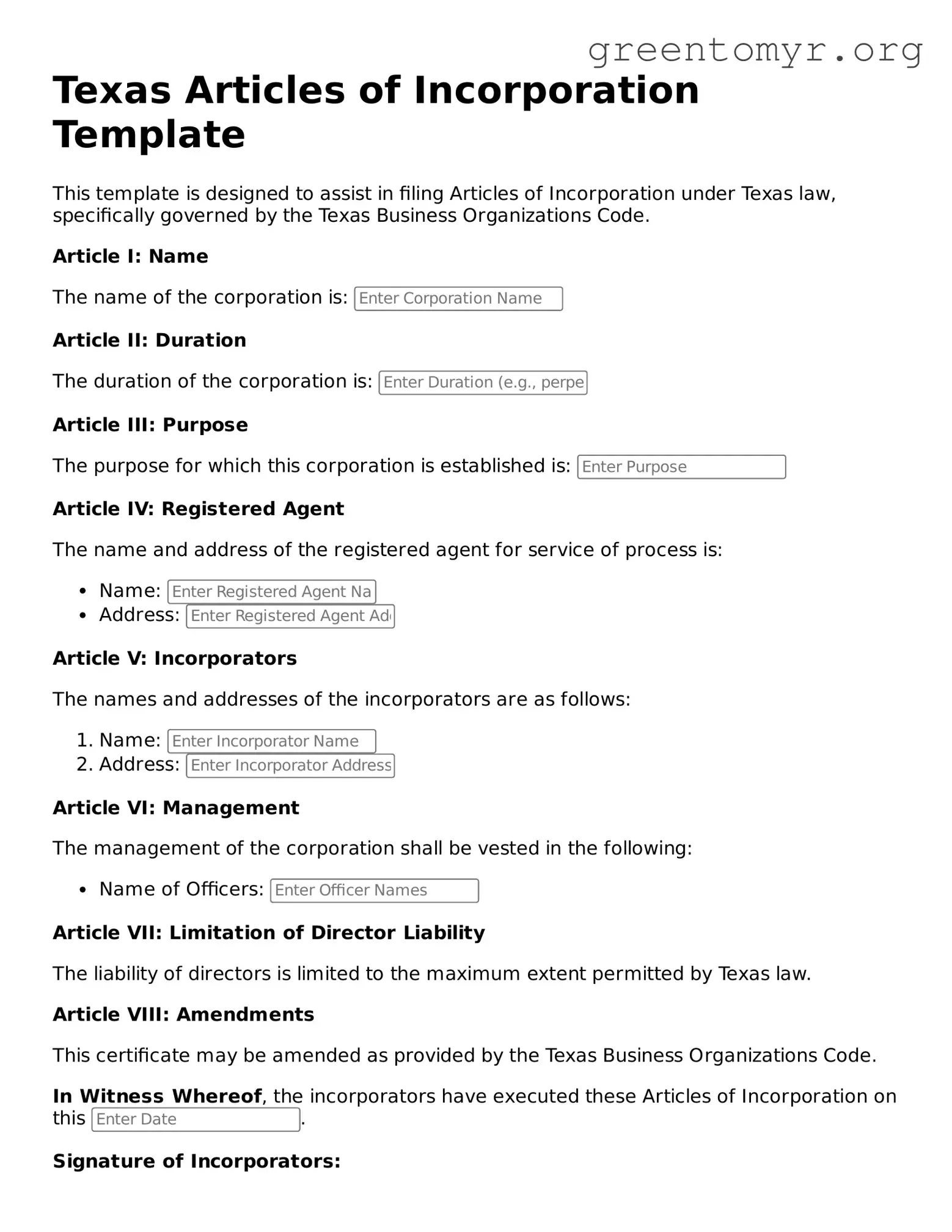Articles of Incorporation Form for the State of Texas
The Texas Articles of Incorporation form is a legal document that establishes a corporation's existence in the state of Texas. This essential form outlines key details about the business, such as its name, purpose, and structure. Completing this form accurately is crucial for anyone looking to start a corporation in Texas.
Ready to get started? Fill out the Texas Articles of Incorporation form by clicking the button below.
